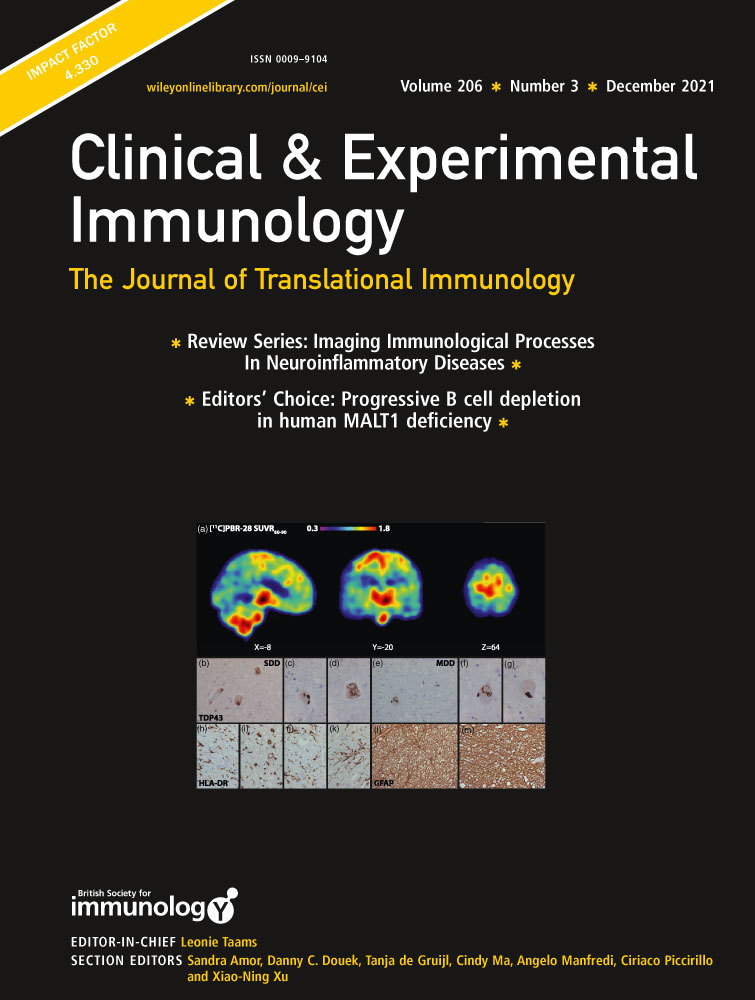West African donors have high percentages of activated cytokine producing T cells that are prone to apoptosis
Abstract
Persistent immune activation has been suggested to affect the subset composition and activation status of peripheral blood cells. In this study we have compared peripheral blood mononuclear cells (PBMC) from a group of Ghanaians living in an area with high prevalence of malaria, mycobacteria, EBV and helmintic infections to a group of European counterparts. Our hypothesis was that persistent challenge with microorganisms is associated with increased production of cytokines and increased susceptibility of periphery cells to undergo apoptosis. We observed an increased frequency of activated T cells and a higher frequency of IL-4- but not IFN-γ-producing cells in the periphery of the Ghanaians. The IL-4 was produced mainly by CD4+ cells, in contrast to IFN-γ which was produced equally by CD4+, CD8+ and TCR-γδ+ cells. The frequencies of cytokine-producing cells were highly correlated to the frequencies of activated cells. Finally, cells from Ghanaians were more susceptible to activation-induced apoptosis. These results may explain why some epidemic diseases seem to have a different mode of transmission in Africa compared to the western world, and may thus be of importance when vaccine strategies are considered in Africa.




